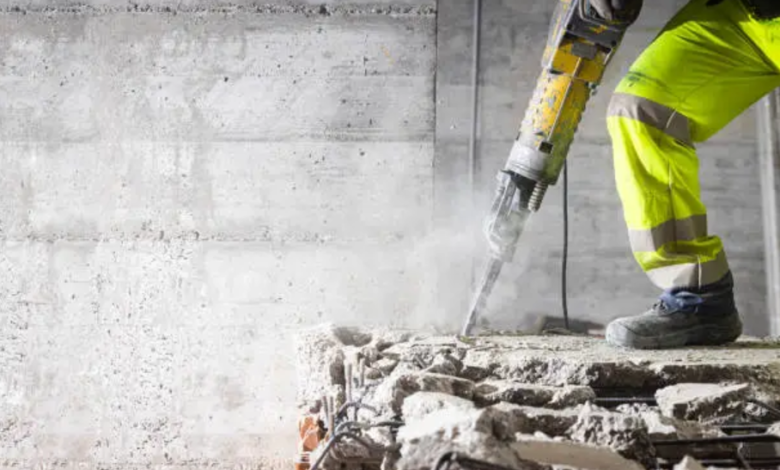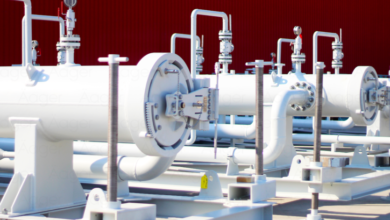Importance and Use of Pneumatic Drills in Industrial and Domestic Tasks

Having multiple uses across a number of industries, pneumatic drills have become popular tools that work using compressed air. Their reliability, ruggedness, and ability to perform heavy-duty tasks makes them sought after in businesses across the globe. When sourcing tools from reputable suppliers, businesses often struggle to find reliable information that helps them decide the best time and place to use such tools. The following article discusses the everyday and industrial applications of pneumatic drills and their relevance for specialized and general maintenance tasks in different sectors.
Definition of a Pneumatic Drill
In automatic machines and equipment which have been powered using air instead of electricity, a pneumatic drill rides on top. These devices are perfect for places having power limitations and where electrical hazards are a concern. The unique features and specifications of pneumatic drills will be examined later but, for now, we will analyze the everyday uses of drills powered using pneumatic technology.Compared to standard drills, when is a pneumatic drill commonly used, operational longevity, power-to-weight ratio, and lower weight. From construction companies to manufacturers, nearly all businesses use pneumatic tools for their heavy-duty work.
See also: AI for Pest Control: The Smart Tech Solution Revolutionizing Modern Extermination
Industrial Uses of Pneumatic Drills
Due to reliability, power, ease of use, and advanced safety features, numerous industries utilize pneumatic drills. Here are some industrial applications:
1. Construction Industry
Pneumatic drills are crucial in the construction industry for drilling holes into concrete, stone, or metal. Contractors regularly use them for bolt hole forming, fastener removal, and bolt capturing. Due to the functionality of pneumatic drills in tough environments, they are a staple on most construction sites. This alongside the lightweight design of these drills allows for efficient operation without exhaustion.
2. Manufacturing and Assembly Lines
Pneumatic tools are widely used on manufacturing and assembly lines where they are used for drilling, tapping, and a range of other activities. These tools are ideal for mass production environments, as their reliability ensures smooth operation. The efficiency of pneumatic tools makes them particularly adaptable to repetitive procedures such as assembling components or drilling holes in various materials like metals, plastics, and even wood, where screws and bolts are used.
3. Automotive Industry
Pneumatic tools are highly needed in the automotive industry for assembling vehicle parts, repairing cars, and even for removing rusted bolts. The tools are very useful in operations that deal with high-torqued work, especially in assembly plants and workshops. In automotive work, mechanics apply pneumatic tools to do accurate hole drilling, old part removal, and regular maintenance in cars and trucks.
4. Oil and Gas Industry
Working with high pressure environments requires specific tools, and the oil and gas industry is no exception. For tasks such as maintenance of pipelines, oil drilling, and even work on offshore rigs, these drills are used. In such cases, pneumatic tools have their advantages because they work safely without the risks that electric powered tools bring.
5. Mining and Quarrying
Mining companies are known to use pneumatic drills to bore through steep rock faces in order to obtain minerals and ores. The tools were engineered specifically for high-impacted drills since they have to break surfaces with ease. Because these drills use compressed air, they can be controlled with precision and less risk of disruption which is important in a fast paced industry.
Everyday Applications of Pneumatic Drills
In many cases, a drill is associated with industrial work. However, its drilling features may be used in many chores mainly under maintenance and repairs. For B2B companies, having a reliable supplier of these drills can guarantee the smooth flow of tools necessary for routine functions.
1. Maintenance in Warehouses and Factories
From factories down to the simplest of warehouses, many rely on pneumatic drills for primary maintenance functions. These can include adding or taking out bolts, screws, and fasteners within bulky pieces of machinery or structural components. The ability of pneumatic drills to handle repetitive tasks without constant resupplying or the need for charging makes these tools a favorite among maintenance personnel.
2. Repair and Maintenance of Infrastructure
Local governments and infrastructure maintenance teams make use of pneumatic drills to aid in the repair of public works such as roads, bridges, and tunnels. These drills can handle large-scale repairs that are high-powered, especially when dealing with reinforced concrete or steel structures. Using pneumatic drills in such scenarios greatly improves operational efficiency, helping to slash downtime.
3. Home Improvement and Renovations
In demolition and construction activity as part of a DIY project, home handypersons are becoming more and more acquainted with stems type drills, in particular, pneumatic ones. Whether it’s putting anchors in drywall, hanging cabinets, or building furniture, pneumatic drills offer practical solutions for both small and big endeavors.
4. HVAC Systems and Plumbing
Pneumatic drills are also often utilized in HVAC (Heating, Ventilation and Air Conditioning) and plumbing systems for installing ductwork and pipes or placing various fittings. These tools allow precision drilling, which is crucial while dealing with metal, PVC, or even concrete. With all the options available in the market, company time is minimal while accomplishing such projects.
5. Usage of Pneumatic Power Tools in Auto Repair Shops
Pneumatic tools are common in repair shops as they greatly assist in fixing cars and trucks. They are primarily used for taking out old rotary bolts and working on the intricate parts of the vehicles. Precision and speed are very important for an automobile mechanic, and a pneumatic drill’s range of capabilities fulfills those needs. It helps in both drilling holes within the specified time, and in both tightening and loosening bolts.
Benefits of Drilling with a Pneumatic Drill
The efficiency achieved with using a pneumatic drill greatly increases the speed at which tasks are completed in the workplace, which enhances productivity while minimizing costs. These factors are among the reasons why they are dominantly found across industries. Let us examine some of these benefits;
1. Safe to Use
Pneumatic drills are much safer than electric powered ones because of their design. Drills with electric components are more likely to cause fire hazards or become damaged in a volatile environment, such as a chemical plant or mine. Operating stone drills without an electric component also increases their reliability, which leads to lower maintenance outages.
2. Power and Performance
Pneumatic drills are power equipment that surpasses electric drills in efficiency due to their favorable power-to-weight ratio. With the help of user-friendly mechanisms, these drills can bore holes into sturdy concrete, metal, and stone materials. Workers can now achieve heavy-duty tasks without needing excessive effort and maximize productivity while improving overall efficiency with this power.
3. Reduced Operator Fatigue
Compared to electric drills, pneumatic drills are more lightweight and ergonomic, proven to lessen operator fatigue. This is especially helpful for workers in sectors like construction and automotive assembly which require repetitive movement for long durations.
4. Energy Efficiency
Pneumatic tools benefit companies in several ways since they run on compressed air instead of electrical energy. There are no operating costs from electrical current, leading to improved savings. Moreover, periods for replacement become less frequent due to extended durability, reducing overall business expenses.
Choosing The Right Pneumatic Drill Supplier For Your Business
When looking for suppliers, paying attention towards the sought tools and their tailoring to specific requirements will ensure effectiveness for industrial or day-to-day usage. Suppliers should be chosen based on:
- Product Range: Pick the suppliers that stock an extensive collection of pneumatic tools like drills, impact wrenches, and grinders, which increases flexibility to service various requirements for different types of businesses.
- Customer Service and Support: Aside from provisions, you should be able to receive maintenance, technical support, and all-rounded customer service from a dependable supplier.
- Pricing and Delivery: Consider the reasonable prices offered alongside delivery schedules, as both factors can have an impact on whether products are supplied to meet project deadlines without incurring extra costs.
Conclusion
They can be found in just about every business, from heavy construction to daily maintenance work, making pneumatic drills one of the most versatile power tools available. Noting when a business is most likely to require a drill gives clarity to suppliers on when they should be prepared to meet demand. With the right pneumatic suppliers, businesses can achieve efficiency and reduced downtime, along with cohesive execution of tasks.




